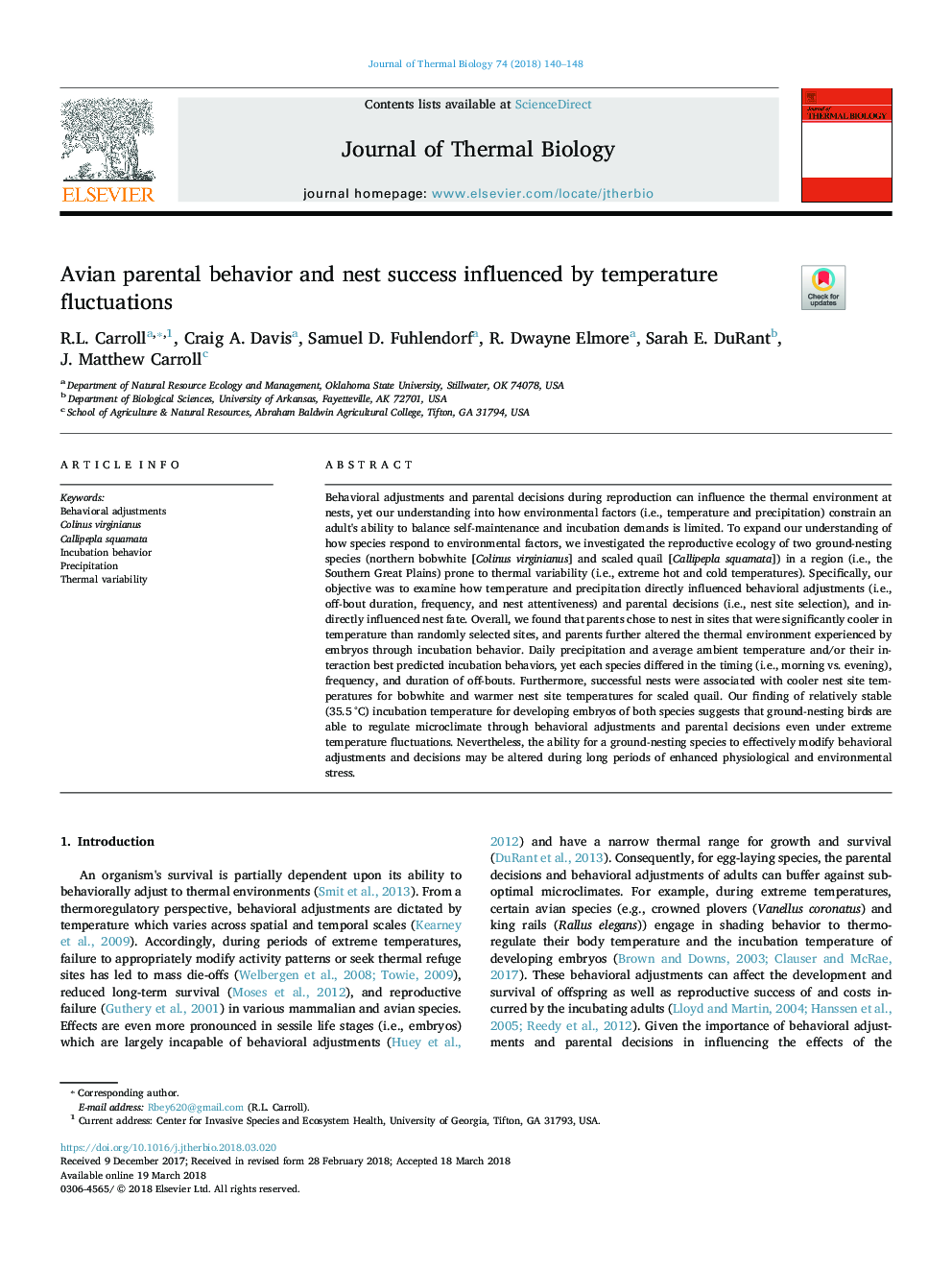| کد مقاله | کد نشریه | سال انتشار | مقاله انگلیسی | نسخه تمام متن |
|---|---|---|---|---|
| 8650021 | 1571073 | 2018 | 9 صفحه PDF | دانلود رایگان |
عنوان انگلیسی مقاله ISI
Avian parental behavior and nest success influenced by temperature fluctuations
ترجمه فارسی عنوان
رفتار پدر و مادر پرنده و موفقیت لانه بر اساس نوسانات دما تحت تاثیر قرار می گیرد
دانلود مقاله + سفارش ترجمه
دانلود مقاله ISI انگلیسی
رایگان برای ایرانیان
کلمات کلیدی
موضوعات مرتبط
علوم زیستی و بیوفناوری
علوم کشاورزی و بیولوژیک
علوم کشاورزی و بیولوژیک (عمومی)
چکیده انگلیسی
Behavioral adjustments and parental decisions during reproduction can influence the thermal environment at nests, yet our understanding into how environmental factors (i.e., temperature and precipitation) constrain an adult's ability to balance self-maintenance and incubation demands is limited. To expand our understanding of how species respond to environmental factors, we investigated the reproductive ecology of two ground-nesting species (northern bobwhite [Colinus virginianus] and scaled quail [Callipepla squamata]) in a region (i.e., the Southern Great Plains) prone to thermal variability (i.e., extreme hot and cold temperatures). Specifically, our objective was to examine how temperature and precipitation directly influenced behavioral adjustments (i.e., off-bout duration, frequency, and nest attentiveness) and parental decisions (i.e., nest site selection), and indirectly influenced nest fate. Overall, we found that parents chose to nest in sites that were significantly cooler in temperature than randomly selected sites, and parents further altered the thermal environment experienced by embryos through incubation behavior. Daily precipitation and average ambient temperature and/or their interaction best predicted incubation behaviors, yet each species differed in the timing (i.e., morning vs. evening), frequency, and duration of off-bouts. Furthermore, successful nests were associated with cooler nest site temperatures for bobwhite and warmer nest site temperatures for scaled quail. Our finding of relatively stable (35.5â¯Â°C) incubation temperature for developing embryos of both species suggests that ground-nesting birds are able to regulate microclimate through behavioral adjustments and parental decisions even under extreme temperature fluctuations. Nevertheless, the ability for a ground-nesting species to effectively modify behavioral adjustments and decisions may be altered during long periods of enhanced physiological and environmental stress.
ناشر
Database: Elsevier - ScienceDirect (ساینس دایرکت)
Journal: Journal of Thermal Biology - Volume 74, May 2018, Pages 140-148
Journal: Journal of Thermal Biology - Volume 74, May 2018, Pages 140-148
نویسندگان
R.L. Carroll, Craig A. Davis, Samuel D. Fuhlendorf, R. Dwayne Elmore, Sarah E. DuRant, J. Matthew Carroll,
